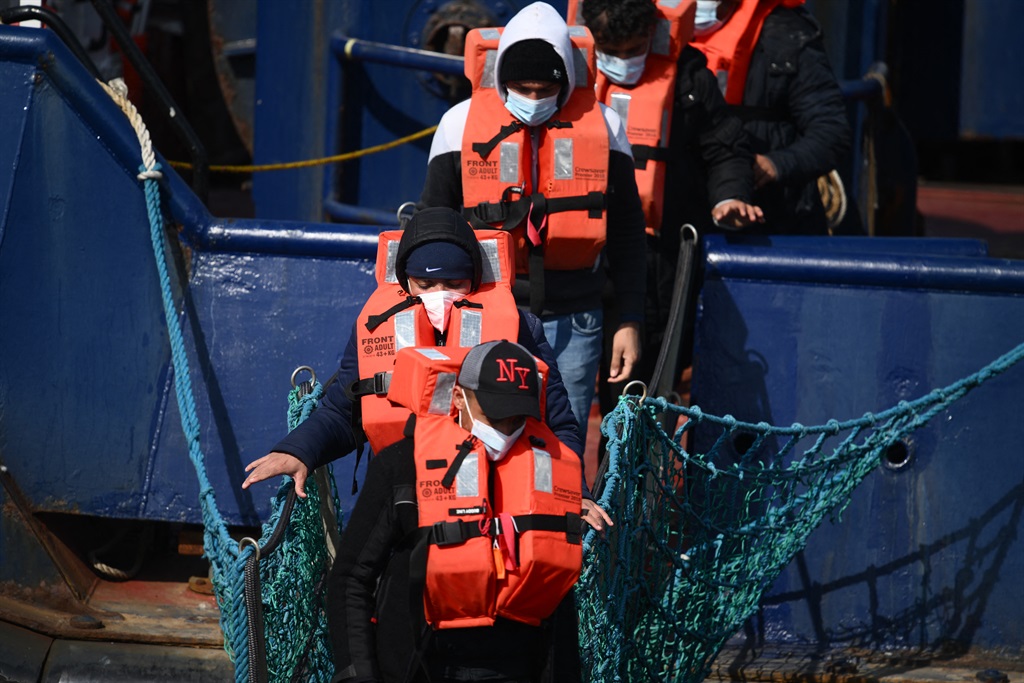

- In the new Migration and Economic Development Partnership scheme, the UK will take in Rwanda’s most vulnerable refugees.
- Rwanda said the deal was a bold move to solve the world’s migration crisis.
- Amnesty International said the new deal was an unrealistic political fantasy that would set a bad example for the world.
The United Kingdom could take in some refugees from Rwanda as part of its new strategy to override the Migration and Economic Development Partnership scheme, which the UK’s Supreme Court declared illegal two weeks ago.
But rights organisation Amnesty International has called the new arrangement a “political fantasy”.
According to Article 19 of the deal, some of Rwanda’s vulnerable refugees will be resettled in the UK.
“The parties shall make arrangements for the United Kingdom to resettle a portion of Rwanda’s most vulnerable refugees in the United Kingdom, recognising both parties’ commitment towards providing better international protection for refugees,” the agreement states.
As of September this year, Rwanda was home to 135 733 refugees, asylum seekers, and other displaced people.
The UK Supreme Court found that refugees were not safe in Rwanda – something Kigali was not happy with.
READ | UK’s Rwanda deportation plan collapses amid blame game and an unamused Rwanda
Numerous human rights organisations, such as Human Rights Watch, have in the past documented how Rwanda was not a safe destination.
In a statement released after the new deal, for which UK Home Secretary James Cleverly flew down to Kigali, Rwanda’s government spokesperson, Yolande Makolo, said Rwanda was a safe destination.
She said:
We have a proven record of offering a home to migrants and refugees from around the world. Anyone who comes to Rwanda under this agreement will be welcomed and given the safety and support they need to build new lives in our country.
She added that the new deal sought to prove that Rwanda could make a difference in the migration crisis.
“It’s a bold new approach to deter the dangerous migration journeys that are causing untold suffering while also addressing the global imbalance of economic opportunity, which is the underlying cause of mass irregular migration—the boats will not be completely stopped unless we reverse the lack of opportunity and the insecurity in countries around the world,” she said.
Amnesty International UK’s refugee and migrant rights director, Steve Valdez-Symonds, said the UK government should have learnt from the initial rejection at the Supreme Court that the deal was in bad taste.
ALSO READ | New UK home secretary eager for new law to revive Rwanda deportation deal
He also added that it was a bad example for the world.
“Last month’s Supreme Court ruling should have acted as a reality-check on the government’s hopeless Rwanda plan, but instead ministers are now putting at risk any notion that it respects the law, courts, and the country’s international agreements.
“The gross political fantasy that Rwanda can simply receive these people from the UK is utterly immoral, wholly impractical, and sets a terrible example on the world stage,” he said.
The agreement
The deal, if successful, will not last until 13 April 2027 when it’s set for review.
It can be terminated with three months’ written notice by either party.
It will come into effect as soon as “receipt of the last notification by the parties that their internal procedures.”
Rwanda is ready for it, while the UK will still have to debate it in parliament.
Each relocated person is due to be given accommodation that is fit for human habitation, such as a flat with basic household furnishings and an allowance of three meals per day.
Those aged 18 and older will be given a cellphone and access to the internet. Once one has been successfully relocated to Rwanda, the state will do medical tests.
“Each relocated individual shall have access to quality preventative and curative primary and secondary healthcare services that are at least of the standard available to Rwandan nationals,” reads the contract.
A first instance body will be instituted, and its mandate will be to refuse or grant a claim and seek and consider advice from a second independent expert.
One can appear before this body within six months of their arrival in Rwanda.
“A decision by the first instance body whether a relocated individual is recognised as having a protection need shall only be taken following an appropriate examination,” the contract stipulates.
The News24 Africa Desk is supported by the Hanns Seidel Foundation. The stories produced through the Africa Desk and the opinions and statements that may be contained herein do not reflect those of the Hanns Seidel Foundation.
